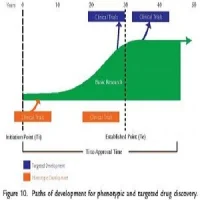Findings from Vanderbilt University researchers show that a drug originally intended for the treatment of rheumatoid arthritis may be the first drug to treat calcification of heart valves. Findings are published in Circulation.
Nearly 750,000 American suffer from heart attacks every year. Those and other types of heart disease are the number 1 killer in America. About a quarter of Americans suffer from hardening of the valves by the time they are 65 and half by 85. Currently, the only available treatment for this condition is surgical replacement.
The drug known as SYN0012 has shown promise in keeping heart valve leaflets supple. Originally intended for rheumatoid arthritis, the drug is an anti-inflammatory agent that binds to cadherin-11 (CDH-11) and blocks fibroblasts from becoming active.
"Aortic valve stenosis, even though it involves only a little piece of tissue, has a catastrophic effect on the heart," said W. David Merryman, associate professor of biomedical engineering. "The antibody we're working with blocks fibroblasts from becoming the active type that leads to disease. It keeps them from becoming inflamed.
We believe there is potential for using this drug at the first sign of valve disease to prevent the progression. You likely cannot reverse the damage, but we believe the drug can prevent it."
Vanderbilt cardiologist and Assistant Professor of Medicine Mike Baker is hopeful that this drug offers a strategy of prevention. Currently there are no interventions for aortic valve stenosis that could slow its progression.
The drug is currently in human clinical trials for rheumatoid arthritis but Prof Merryman is hoping to gain permission to run clinical trials for its use in heart valve disease. His research into CDH-11 dates back to 2013 when his team found that patients suffering from calcification had nearly 50 times as much CDH-11 present in their valves as compared to patients who did not have the condition.
Source: Vanderbilt University
Image Credit: Vanderbilt University
References:
Clark, Cynthia R. et al. (2017) Targeting Cadherin-11 Prevents Notch1-Mediated Calcific Aortic Valve Disease. Circulation. doi.org/10.1161/CIRCULATIONAHA.117.027771
Latest Articles
heart disease, rheumatoid arthritis, Heart Valve Calcification, SYN0012
Findings from Vanderbilt University researchers show that the first drug to treat calcification of heart valves may be originally designed for the treatment of rheumatoid arthritis. Findings are published in Circulation.










